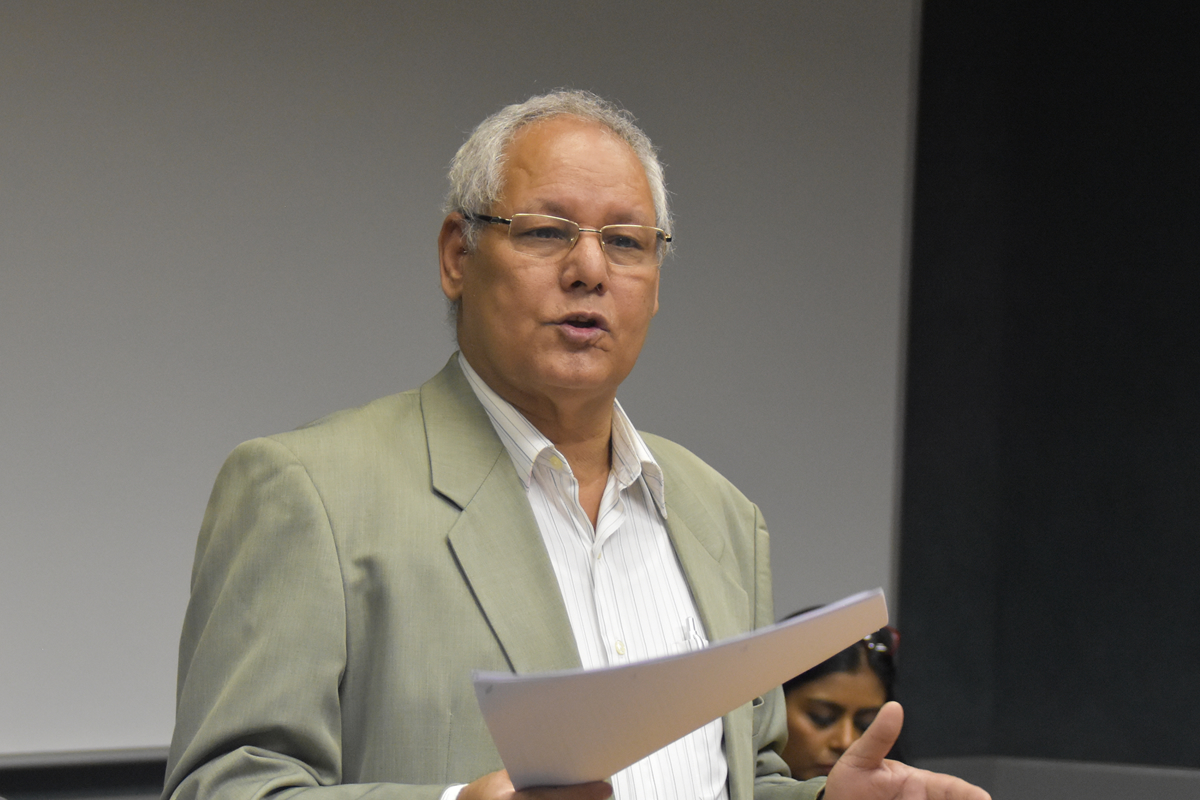On 3 April 2019, the Centre for Human Rights, University of Pretoria, in partnership with Sandblast-Arts, Defense Forum Foundation, Africa Solidarity for Sahrawi, Western Sahara Campaign and Western Sahara Action Forum, hosted a debriefing on the Sahrawi Arab Democratic Republic (Western Sahara). The discussion centred on issues of decolonisation, self-determination for the Sahrawi people, and Morocco’s exploitation of the Sahrawi Republic’s natural resources.
The debriefing consisted of a panel discussion with three speakers. Ambassador Radhi S. Bachir, the Sahrawi Republic Ambassador to South Africa, provided a brief background to the discussion. He explained why the 1991 agreed-upon referendum has yet to be held, as well as the challenges faced in implementing international decisions which prevent the Moroccan government selling the Sahrawi Republic’s natural resources. He also touched on the attempt by Morocco to sideline the March 2019 SADC Solidarity Conference held in Pretoria, South Africa. Furthermore, he discussed the role of powerful states who support Morocco and how it aids in maintaining the status quo.
![]() Download Ambassador Bachir’s speech
Download Ambassador Bachir’s speech
Ms Catherine Constantinides, a human rights activist, shared her experience of working in the camps within the country. She highlighted the ongoing humanitarian situation and called for more to be done. She urged the audience not to forget the ongoing decolonisation struggle of the Sahrawi people, which prevents Africa from truly being a united continent.
The discussion then turned to whether the core issue is political or legal. Ms Magdalene Moonsamy, an attorney and human rights activist, described how politics are at the centre of the struggle, given that legal decisions are already in place that grants the Sahrawi Republic recognition and the right to hold a referendum. She questioned the direction of African politics and the true meaning of solidarity when the long-standing decolonisation of Western Sahara is left unaddressed. Ms Moonsamy ended the discussion by looking at the factors that demonstrate Morocco’s reluctance to pursue a peaceful solution to the Sahrawi Republic’s independence.
The Centre’s Director, Prof Frans Viljoen, noted that it stands in solidarity with the struggle for self-determination of the Sahrawi people. He continued by denouncing the situation where one African Union (AU) member state is under the control of another AU member state. He expressed the hope that South Africa would use its membership of the United Nations Security Council to speed up the process towards a genuine, free and fair referendum that would settle the fate of the inhabitants of the Sahrawi.
The event was rounded off with an engaging question and answers session, which included a discussion on Morocco’s re-joining of the AU and the AU’s response to Morocco’s challenges against decolonising the Sahrawi Republic.
For more information, please contact:


